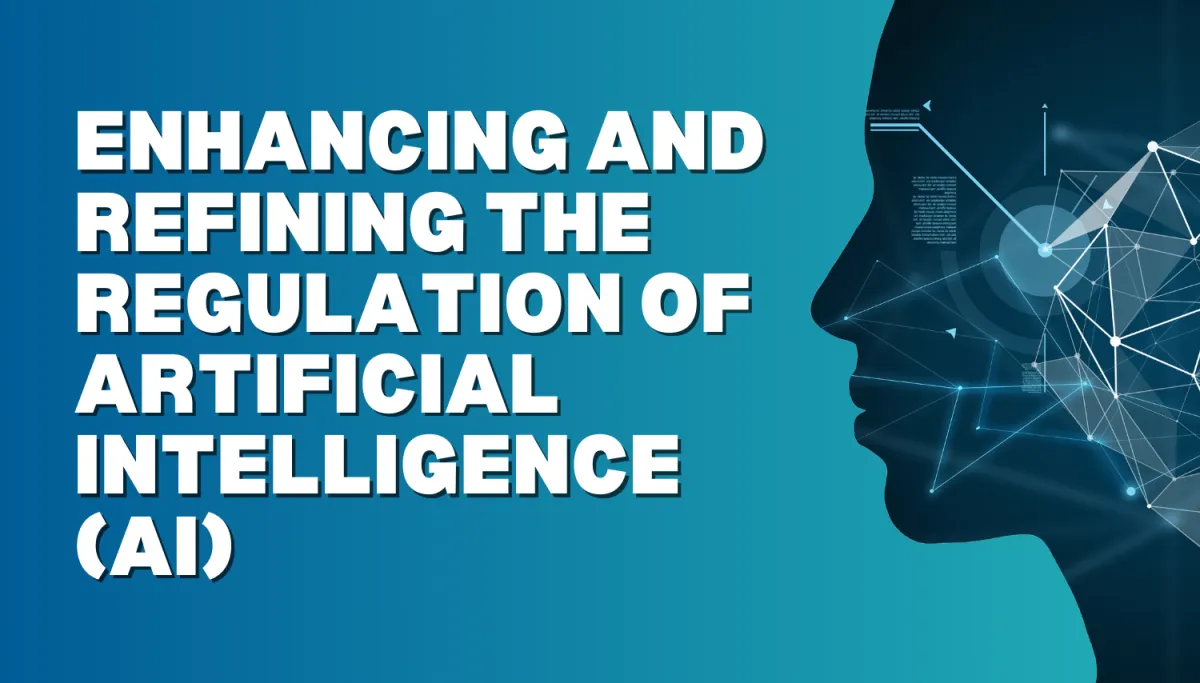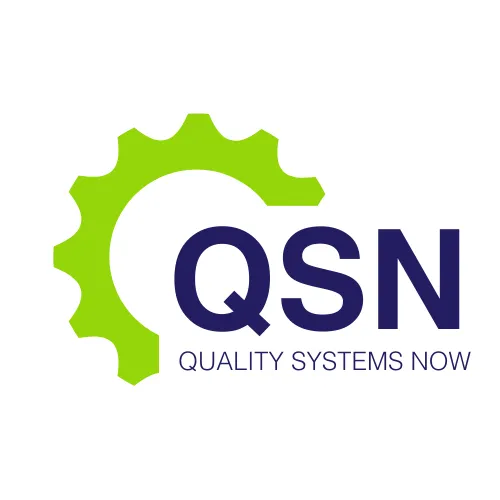LATEST NEWS

Enhancing and Refining the Regulation of Artificial Intelligence (AI)
Artificial Intelligence (AI) has already brought significant changes to numerous aspects of life, offering the ability to solve problems more quickly and efficiently than ever before. Its applications span from healthcare to finance, education, and everyday conveniences, promising smarter, faster, and more effective ways to get things done. When responsibly and safely deployed, AI can enhance quality of life, improve overall well-being, and contribute to economic growth. However, the same power that makes AI so transformative also comes with significant risks and challenges that must be carefully managed to prevent harm to individuals, organizations, and society as a whole.
AI's ability to analyze large amounts of data and make decisions in milliseconds creates new opportunities for industries to optimize operations and offer better products and services. In healthcare, AI can assist in diagnosing diseases, developing personalized treatment plans, and even predicting patient outcomes. In business, it can streamline supply chains, forecast market trends, and automate complex processes, freeing up human resources for more strategic tasks. Governments and public sector organizations are also exploring AI to improve services, reduce costs, and enhance citizen engagement.
However, alongside these benefits, AI also has the potential to create or amplify significant harms. Inappropriate or poorly regulated use of AI could lead to unintended consequences that disproportionately affect marginalized and vulnerable groups. These include people with cognitive disabilities, displaced workers, the elderly, culturally and linguistically diverse communities, women and girls, gender-diverse individuals, and those experiencing physical or mental health challenges. AI systems that contain inherent biases or rely on inaccurate or poor-quality data can perpetuate inequality and discrimination, exacerbating social divides.
Risks of Bias, Accuracy, and Data Quality in AI
One of the most critical concerns surrounding AI is the potential for bias in its algorithms and decision-making processes. AI models are often trained on historical data, which can reflect existing biases in society. If not carefully managed, these systems can make biased decisions that reinforce stereotypes or unfairly disadvantage certain groups. For example, AI used in hiring processes has been found to favor male candidates over female ones, perpetuating gender inequality in the workforce. Similarly, facial recognition technologies have shown higher error rates for people of color, leading to concerns about racial profiling and surveillance.
Accuracy and data quality are also key risks when it comes to AI deployment. Poor-quality data can result in inaccurate predictions and faulty decisions, leading to harmful outcomes. In healthcare, for instance, an AI system that relies on incomplete or incorrect patient data could misdiagnose conditions or recommend inappropriate treatments. This could have life-threatening consequences and erode public trust in AI-powered healthcare solutions.
Data quality issues can be exacerbated by the sheer scale of AI systems. As AI continues to evolve, the amount of data it consumes grows exponentially, making it harder to ensure the integrity of that data. The challenge of maintaining accurate, unbiased, and high-quality data is significant and will require continuous oversight and improvement.
Public Trust and Concerns About AI
Despite the promise of AI, public trust in the technology remains low. Many people are unsure how AI systems work, and there is widespread concern that they are not being designed, developed, or deployed in a safe and responsible manner. This lack of understanding fuels fears about privacy violations, biased decision-making, and the inability to distinguish between real and fake in a world increasingly influenced by AI-generated content.
In high-risk settings, such as healthcare, finance, and law enforcement, these concerns are particularly acute. People worry about the possibility of AI systems making critical decisions that directly affect their lives, such as whether they receive a loan, a job, or appropriate medical care. In addition to privacy concerns, there is also apprehension about how AI might be used to manipulate public opinion or create hyper-realistic deepfakes that could erode trust in media and democratic institutions.
The Australian Government recognizes the importance of addressing these concerns to ensure AI can be adopted and trusted by the public. Building trust in AI requires transparency, accountability, and robust regulatory frameworks that safeguard the rights of individuals and protect society from harm.
The Australian Government’s Approach to Safe and Responsible AI
As part of its 2024-2025 Budget measure for Safe and Responsible AI, the Australian Government is taking proactive steps to ensure that AI is designed, developed, and deployed safely, particularly in high-risk environments. The government aims to strike a balance between fostering innovation and protecting the public from the potential harms associated with AI.
The key objective is to ensure that AI used in legitimate but high-risk settings—such as healthcare, law enforcement, and financial services—is subject to strict oversight and regulation. At the same time, the government wants to ensure that AI in low-risk settings can continue to thrive without excessive regulatory burden. By promoting responsible AI use across various sectors, Australia can reap the benefits of AI while minimizing its risks.
Regulating AI in the Therapeutic Goods Sector
The regulation of AI is particularly important in the health and aged care sectors, where the use of AI systems can have a direct impact on patient safety and outcomes. The Therapeutic Goods Administration (TGA), a division of the Australian Government’s Department of Health and Aged Care, is responsible for regulating therapeutic goods, including AI models and systems, when they meet the definition of a medical device under Section 41BD of the Therapeutic Goods Act 1989.
As part of its commitment to ensuring safe and responsible AI, the TGA has initiated a review of priority areas in the health and aged care sectors. This review includes a consultation process aimed at gathering feedback from stakeholders on how to mitigate risks and leverage opportunities associated with AI. The goal is to ensure that the regulation of AI in the therapeutic goods sector is both robust and adaptable, addressing the unique challenges posed by this rapidly evolving technology.
Why Your Views Matter
The TGA's consultation process is a critical part of shaping the future regulatory framework for AI in Australia. By seeking input from stakeholders across the health and aged care sectors, the TGA aims to create a regulatory environment that balances innovation with safety. Your feedback will play a vital role in helping the Australian Government clarify and strengthen its approach to regulating AI in the therapeutic goods sector.
The input received through this consultation will inform the development of policies and regulations that ensure AI systems are used safely and effectively. It will also help address the concerns of the public, ensuring that AI is deployed in a way that promotes trust, transparency, and accountability. By participating in this consultation, stakeholders have the opportunity to influence how AI is regulated in one of the most critical areas of public health and safety.
Provide Your Input
Artificial Intelligence holds tremendous potential to transform industries and improve lives, but its risks must be carefully managed to avoid harm. In Australia, the government is taking steps to ensure that AI is deployed responsibly, particularly in high-risk settings like healthcare. By consulting with stakeholders and refining its regulatory framework, the Australian Government aims to build public trust in AI and unlock its full potential for the benefit of society. Your voice in this process is essential to shaping a future where AI is both innovative and safe.
